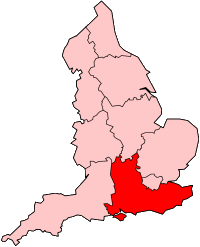| Kentish Flats Offshore Wind Farm | |
|---|---|
 Vestas V90 Wind Turbine Kentish Flats | |
| Country | England, United Kingdom |
| Location | North Sea off the coast of Kent, South East England |
| Coordinates | 51°27′36″N1°5′24″E / 51.46000°N 1.09000°E |
| Status | Operational |
| Construction began |
|
| Commission date | 2005 |
| Owner | Vattenfall |
| Wind farm | |
| Type | Offshore |
| Max. water depth | 3–5 m (10–16 ft) |
| Distance from shore | 5.5 mi (8.9 km) |
| Hub height | 70 m (230 ft) |
| Rotor diameter | 90 m (300 ft) |
| Site area | 10 km2 (3.9 sq mi) |
| Power generation | |
| Units operational | 45 |
| Make and model | Vestas V90-3MW / V112-3.3MW |
| Nameplate capacity | 139.5 MW |
| Capacity factor | 30% |
| External links | |
| Commons | Related media on Commons |
 | |
The Kentish Flats Offshore Wind Farm is a wind farm located off the coast of Kent, England on a large, flat and shallow plateau just outside the main Thames shipping lanes. The wind farm is operated by Vattenfall.



